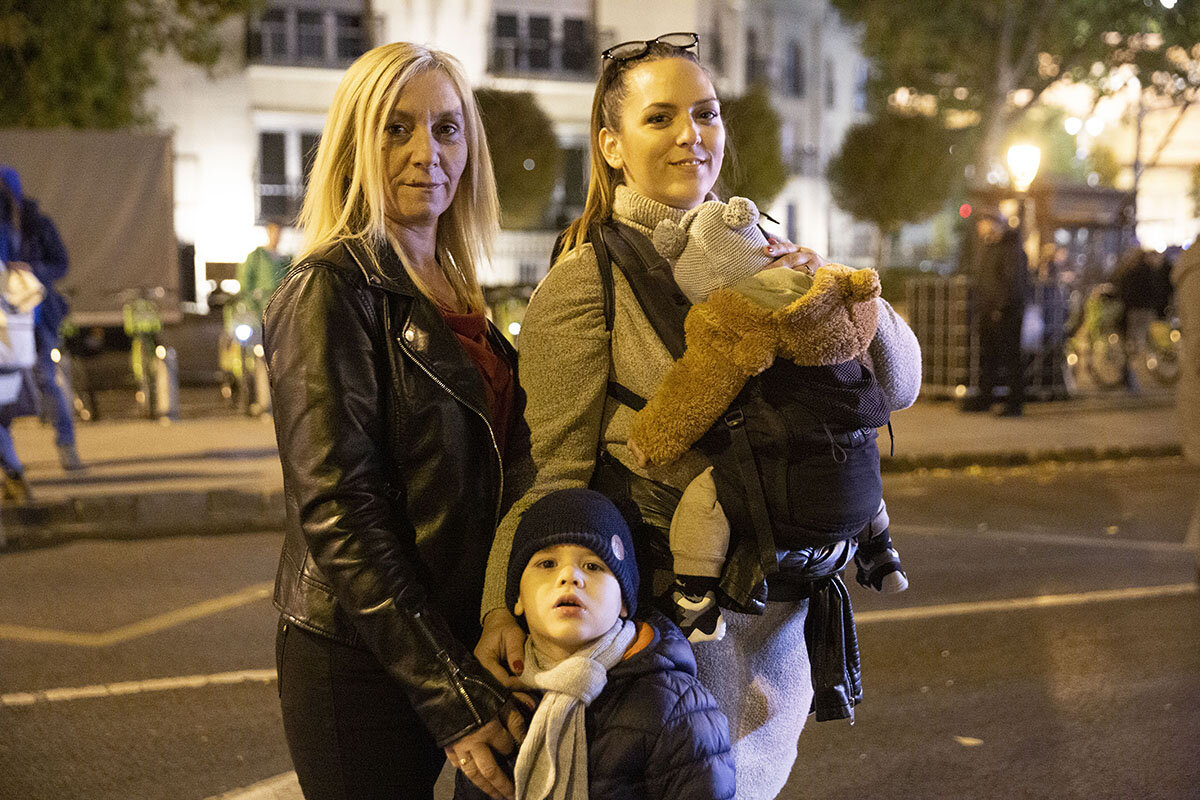The small-town mayor who could oust Hungary’s Viktor Orbán
Loading...
| Budapest, Hungary
When Gica Winsent realized that the man thought to have the best shot at ousting nationalist Hungarian Prime Minister Viktor Orbán was addressing crowds near her home in the Hungarian capital, she hopped on her red bike and pedaled furiously to get there.
“I just wanted to see him in action,” she says, watching as Péter Márki-Zay stops to shake hands and take selfies with supporters. He “seems to be telling the truth,” she adds. “Not just blah blah blah. And he is a calm person.”
Mr. Márki-Zay, a conservative, independent, small-town mayor, is the freshly chosen candidate to lead a disparate group of six opposition political parties in the campaign for elections expected in April. Speaking on the anniversary of the 1956 Hungarian uprising as sunset draped the monuments of Heroes’ Square in gold, Mr. Márki-Zay acknowledged the magnitude of the challenge ahead.
Why We Wrote This
Hungarian Prime Minister Viktor Orbán prides himself on leading an “illiberal democracy.” Now he faces an unlikely challenger at elections next year: a deeply religious, small-town mayor who might just win.
He stressed the importance of unity. It was that quality, he recalled, that gave Hungarians the strength to challenge Soviet rule 65 years ago. “This is how we are going to win: We are going to unite for a free Hungary,” he said. “Let’s not look at who is standing next to us. Let’s look at who we must stand against. It’s going to be a gigantic fight.”
That strategy, analysts say, was forged by necessity because the ruling right-wing Fidesz party has used its two-thirds majority in parliament to change the constitution and electoral law in its favor. It won’t be easy for the opposition to take down Europe’s standard-bearer of illiberal democracy, but analysts believe it’s more possible now than at any time in the past decade.
Opinion surveys put the ruling Fidesz party and the opposition coalition neck and neck, polling at 37% each, according to the firm Median.
A rift in social values
A message of unity was the strategy that helped Mr. Márki-Zay break into politics in 2018. That’s when he became the mayor of rural Hódmezővásárhely, a Fidesz stronghold. It was also the opposition’s message in 2019 municipal elections that delivered them surprise victories in Budapest and other key cities.
But the opposition coalition will have to continue to rally around Mr. Márki-Zay, who won an unprecedented joint primary this month, despite conservative social values that many opposition voters disdain.
“It’s very tricky because he is a conservative guy,” says Róbert László, an election specialist at think tank Political Capital. “Ten years ago, he voted for Fidesz. He lives in the countryside and is the very proud father of seven children. He couldn’t be further from the political taste of downtown liberals and intelligentsia. However, he doesn’t say that everybody should think the way he does, so in this sense, he can be regarded a liberal.”
Mr. Márki-Zay says he is open to all viewpoints but that the most important question for Hungary is returning to democratic norms. “The question is do we want to belong to the Western European, Christianity-based culture?” he says in an interview with The Christian Science Monitor. “Do we want to stay in the European Union? Do we want to be a loyal member of NATO? Or do we want to be a rogue state doing business against the nation’s interest with communist China and [Russian President Vladimir] Putin and the Islamists.”
Tackling corruption, he says, sits at the top of his agenda. “What we see is that corruption is so strong in Hungary that it overrides all other national interests.”
And that message resonates among voters, especially since it comes from an independent. “There is a big demand … within opposition voters that finally there should be consequences, at least political consequences … for corruption,” says Mr. László. “This is the most relevant promise he makes.”
“Most of the Hungarian opposition voters are left-wing and liberal voters,” says Andrew Bíró Nagy, director of Policy Solutions, a research institute. But many concluded that the best candidate to take on what he calls a radical-right-wing regime is someone who is culturally close to Orbán but unstained by corruption.
A rival “peace march”
On the Oct. 23 uprising anniversary, Mr. Orbán too called a rally, using the opportunity to thunder against his enemies in the West, accusing the United States and the European Union of meddling in Hungarian politics. Tens of thousands of Hungarians gathered to hear him warn that “the left wing, however they disguise themselves, are still the same left wing,” quoting a passage on false prophets from the Gospel of Matthew.
His supporters marched along the banks of the Danube and crossed Liberty Bridge, many carrying signs bearing the names of their rural towns, or equating European Union membership with living under a dictatorship.
“Our biggest fear is that all the [international] media and all the EU leaders are against our Christian government,” says Judit Lamboy, a Budapest native who joined Mr. Orbán’s march. “They say this government is totalitarian. That is not true. This is an elected government and hopefully it will be elected again.”
Mr. Márki-Zay says the next six months will be nothing but hard work. His heroes include Winston Churchill as well as nonviolence crusaders Mahatma Gandhi and Nelson Mandela. He admires both former American presidents Ronald Reagan and Barack Obama, but also holds up Lyndon B. Johnson for his Great Society program, which focused on eradicating poverty and racial injustice.
His willingness to dole out criticism of both the government and opposition has earned him the label “anti-establishment.” Analysts say he may have more in common with a 1980s or early 1990s Republican.
The six parties are drafting a joint manifesto that also reflects the priorities of left-wing, liberal, and green parties, says Mr. Bíró Nagy. “Another hope of the opposition is that this conservative, small-town mayor is willing to make compromise in terms of policy,” says the analyst. The current draft suggests a focus on social justice, democracy, and a reorientation of foreign policy in favor of the EU and U.S.
The time he spent living in the U.S. and Canada, Mr. Márki-Zay says, shaped his views on how to manage migration, among other issues. He sees the border fence erected under Mr. Orbán as a “legitimate tool of migration control” but says migrants should not be the object of hate campaigns that undermine their integration into society. “It is not about the number of migrants,” he says. “It is about screening and selecting them.”
He may not be a fan of gay marriage or abortion but considers them a private matter and says he wouldn’t legislate against them.
His supporters say they find his messages of love and unity a refreshing contrast to the anti-immigrant and anti-LGBTQ “hate campaigns” of Mr. Orbán. They also feel confident that, since he is a devout Roman Catholic with a large family, it will be tough for Fidesz to best him on “values.”
“He is everything Fidesz represents,” says Réka Nagy, a supporter of the former far-right Jobbik party, who came to Mr. Márki-Zay’s meeting with a baby and toddler in tow. “As long as he doesn’t get into a fight with the [left-wing] opposition then he can succeed.
“We don’t care who wins against Orbán,” she adds. “The point is that finally somebody does.”
Dorottya Czuk contributed reporting to this article.








